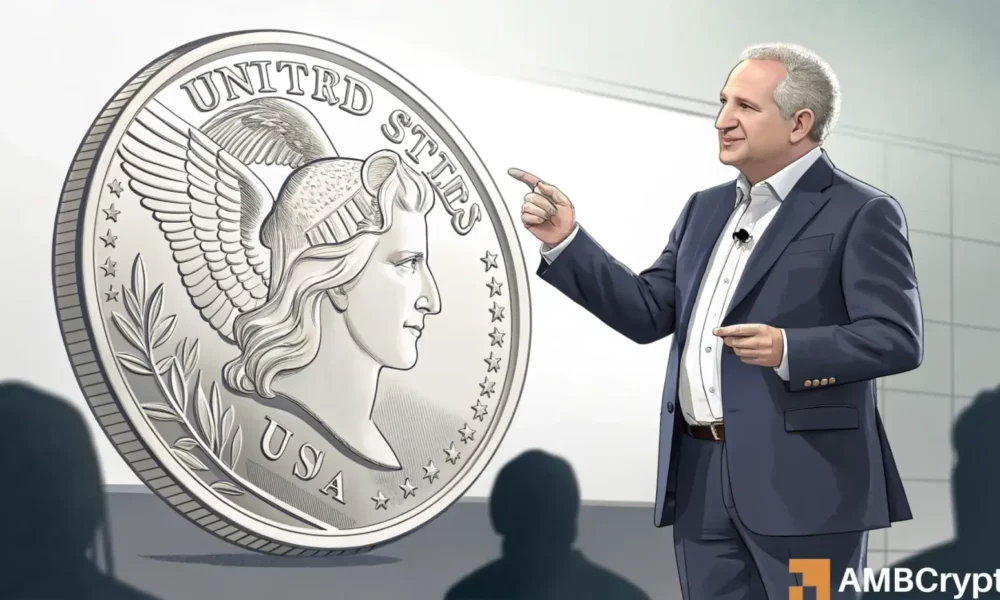Peter Schiff, a well-known critic of Bitcoin and a strong supporter of gold, has once again expressed his reservations about the cryptocurrency. In a recent social media update, Schiff put forth the suggestion of introducing a digital currency called “USA coin” by the United States as an alternative to Bitcoin.
He recommended that the USA coin could have a limited supply of 21 million, similar to Bitcoin, but with an enhanced blockchain structure to facilitate transactions.
While Schiff’s skepticism towards Bitcoin is no secret, his latest proposal has sparked fresh discussions on the comparison between Bitcoin and state-driven digital currencies.
Bitcoin Versus USA Coin – Schiff’s Idea
Schiff believes that Bitcoin falls short in terms of scalability and its functionality as a medium of exchange. He argues that the issues could be addressed by the introduction of USA coin, which boasts improved blockchain capabilities and the backing of a government-issued currency.
Nonetheless, this proposal has faced criticism from Bitcoin proponents who underline decentralization as the key strength of Bitcoin.
Bitcoin is structured to operate independently without centralized authority. This design ensures that no single entity, including governments, can influence its supply or regulations.
In contrast, USA coin, being a product of the U.S. government, would inherently be centralized. This centralized nature might limit its attractiveness to individuals who appreciate Bitcoin for its immunity to censorship and inflation.
Bitcoin’s Track Record versus Schiff’s Criticisms
Looking back at Schiff’s consistent skepticism, it is essential to revisit his history of predictions concerning Bitcoin. Despite repeatedly forecasting the downfall of Bitcoin, the cryptocurrency has continually defied his projections.
An overview of Bitcoin’s performance over time tells a contrasting story.
Starting from its initial valuation of just a few cents to its current price surpassing $95,000, Bitcoin has displayed remarkable growth. Despite occasional market fluctuations, its long-term expansion trajectory has positioned it as one of the most successful assets in recent years.
Schiff’s predictions of Bitcoin’s collapse during previous price spikes (such as at $1,000 in 2013 or $20,000 in 2017) have not come to fruition, further spurring debates between his supporters and cryptocurrency advocates.
The Impact of State-Issued Digital Currencies
If the U.S. were to introduce a digital currency akin to USA coin, it would likely function more like a Central Bank Digital Currency (CBDC) rather than a decentralized cryptocurrency.
CBDCs are structured to integrate within existing financial frameworks, potentially offering quicker and more secure transactions. Nevertheless, they lack the fundamental characteristics that set Bitcoin apart.
Schiff’s conceptual proposal reflects a broader trend where governments are exploring digital currencies to retain control. Whether USA coin could fulfill Schiff’s claim of “enriching everyone” remains purely speculative.
While his doubts about Bitcoin are yet to be justified, his statements draw attention to the increasing interest in government-backed digital assets. Whether USA coin or any other centralized digital asset can rival Bitcoin is a question that only time will address.

